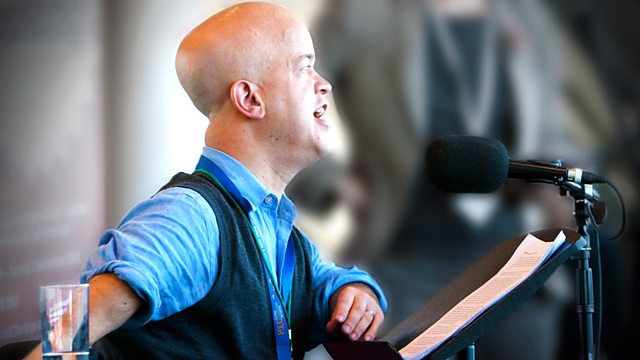Arturo Bispo do Rosario: The Sculptor Who Saved the World
Tom Shakespeare on Brazilian sculptor Arturo Bispo do Rosario, who spent 50 years of his life on a Rio de Janeiro psychiatric ward and did not even think of himself as an artist.
Tom Shakespeare challenges stereotypical ideas about creativity and disability, by celebrating five disabled artists, discussing how their impairments fuelled their genius and demonstrating the variety and achievement of disabled lives.
The visionary Brazilian sculptor Arthur Bispo do Rosario spent fifty years of his life on a Rio de Janeiro psychiatric ward, and did not even think of himself as an artist.
Born in Japaratuba on the east coast of Brazil, the descendent of African slaves, he was exposed to a strongly religious culture and to the hybrid traditions of folk art. He'd been a sailor and an odd-job man when, in 1938, he had a vision of angels bathed in light. He felt that the Virgin Mary had guided him to record the universe in visual form, in preparation for the Day of Judgement. The same year, he was hospitalized for treatment for paranoid schizophrenia. For Bispo do Rosario, this creative outpouring was a spiritual, not an artistic task: he saw it as his duty to prepare for the Last Judgement.
Bispo do Rosario's work is reminiscent of surrealism, of the ready-mades of Marcel Duchamp, of the fabric creations of Louise Bourgeois, the solitary confinement of Kurt Schwitters: all the more extraordinary in that Bispo do Rosario was entirely self-taught, worked in an artistic vacuum, and generated all this extraordinary art through his own originality and imagination.
Producer: Martin Williams.
Last on
Broadcasts
- Wed 7 Jan 2015 22:45大象传媒 Radio 3
- Wed 20 Apr 2016 22:45大象传媒 Radio 3
Death in Trieste
Watch: My Deaf World
The Book that Changed Me
Five figures from the arts and science introduce books that changed their lives and work.
Podcast
-
![]()
The Essay
Essays from leading writers on arts, history, philosophy, science, religion and beyond.





